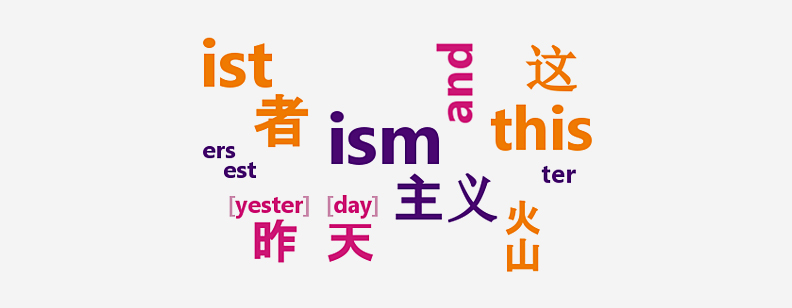how many Chinese words will be common parlance in English? We’ve already had 35 years since Deng Xiaoping began opening China’s economy, resulting in its stratospheric rise—but almost no recent Chinese borrowings in English.
On the contrary, Chinese spend much of their time on studying English. The fact is that Chinese is only a small part of English and even at a shallow phase.
Most Chinese words now part of English show, in their spelling and meaning, to have been borrowed a long time ago, often from non-Mandarin Chinese varieties like Cantonese.
Kowtow, gung ho .Kung fu, tai chi, feng shui and the like are Chinese concepts and practices westerners are aware of. And of course bok choy, chow mein and others are merely Chinese foods that westerners eat. In some degree, foreigners just borrowed the foods.
Read Also: Some Fallible Lexicon Translation in Traditional Chinese
A English-speaker said, ‘We import words from other languages that are hard for English-speakers to pronounce. We borrow from languages with other writing systems ( Russian, Arabic). We borrow from culturally distant places (India, Japan). We borrow verbs and nouns (tsunami).
We borrow not only from friends, but from rivals and enemies (flak from German in the second world war, samizdat from Russian during the cold war, too many words to count from French during the long Anglo-French rivalry).’
Foreigners borrowed a great number of words from all different countries and aspects, merely a small part from Chinese. That is a question that worth of our notion.
In my personal opinion, reasons behind it are diverse, such as different polity, traditional culture, difficulties of learning Chinese, perspective on Chinese, China’s less-developed economy and so on.
Some may argue that China has rocketed to prominence, why so little borrowing words from Chinese? Perhaps China’s rise is just too new and they need another 20 years or so. Or Chinese are too focus on other language rather carrying forward our own ancient language.
And English will borrow from Chinese, too, as trade, cultural and personal connections between China and the west grow. Perhaps there is a cultural cachet in the West that China has yet to attain. If we get that one day, this would certainly boost China’s linguistic exports.
No matter what kind of words that English will borrow, it will largely depend on China’s development, and how the West responds. I sincerely expect that one day Chinese could spread all across the world, which will be a great advancement for our country and give the world another different impression on China.
Take a look at how we helped our client by localizing their project for Chinese language. Click here to read the complete case study
Reference from
https://www.economist.com/blogs/johnson/2013/06/language-borrowing







